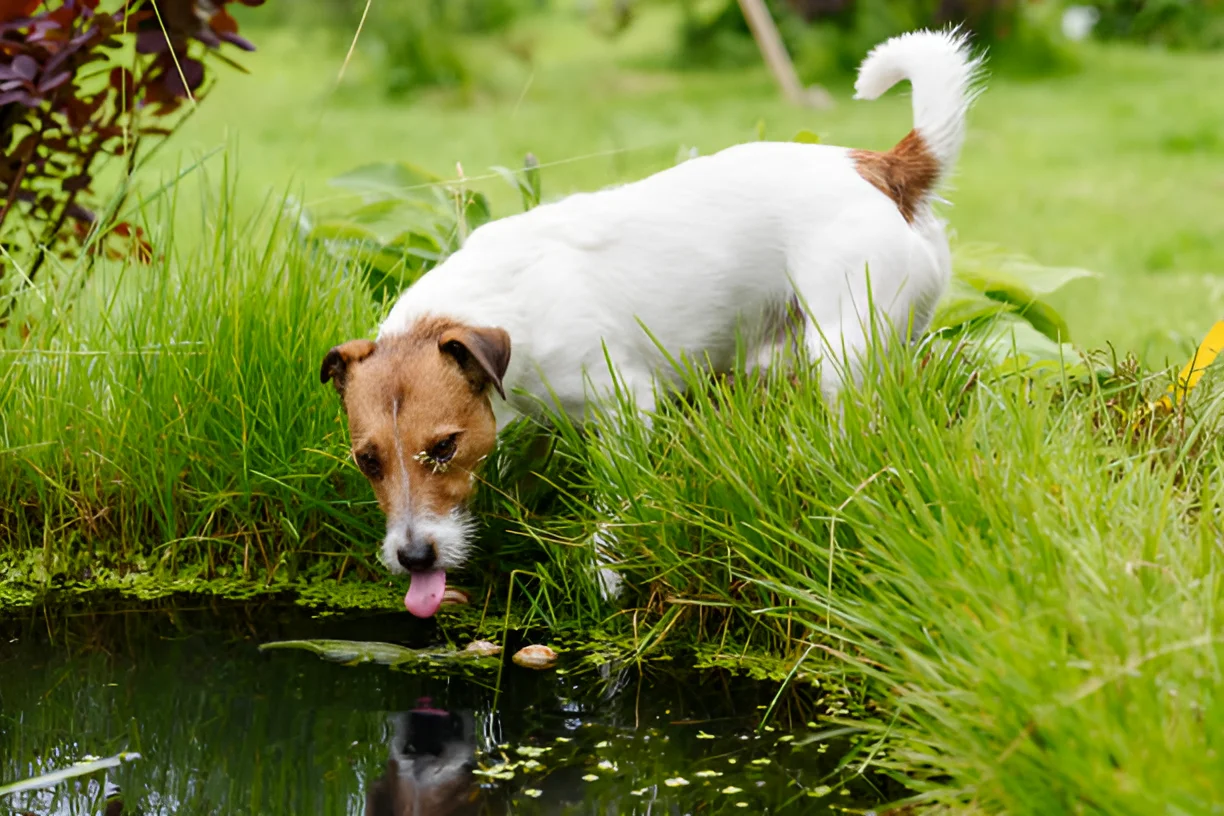Yes, dogs can get Giardia from pond water, as it is a common source of this parasitic infection. Giardia is a microscopic parasite that can cause gastrointestinal issues in dogs, and it is often found in contaminated water sources such as ponds, streams, and puddles.
Giardia is a protozoan parasite that affects the intestines of dogs, leading to a condition known as giardiasis. This parasite is prevalent in various environments, particularly in water sources that can be contaminated with feces. Understanding how Giardia is transmitted, its symptoms, and how to prevent and treat it is crucial for dog owners who want to keep their pets healthy and safe. This comprehensive guide will explore the risks of Giardia from pond water, how to recognize and treat the infection, and preventive measures to protect your dog.
Understanding Giardia
What is Giardia?
Giardia is a single-celled organism that infects the intestines of animals and humans. It exists in two forms: trophozoites, which live in the intestines, and cysts, which are the infectious form excreted in feces. The cysts can survive in the environment for several months, especially in cool, moist conditions.
How is Giardia Transmitted?
Giardia is transmitted through the fecal-oral route. Dogs can become infected by ingesting Giardia cysts from contaminated water, food, or surfaces. Common sources of contamination include:
- Pond Water: Ponds, streams, and other stagnant water sources can harbor Giardia cysts.
- Contaminated Soil: Soil contaminated with feces from infected animals can be a source of infection.
- Direct Contact: Dogs can also get Giardia by coming into contact with infected feces or contaminated surfaces.
Symptoms of Giardia in Dogs
Common Symptoms
The symptoms of giardiasis in dogs can vary but often include:
- Diarrhea: Watery, foul-smelling diarrhea is the most common symptom.
- Weight Loss: Infected dogs may lose weight due to malabsorption of nutrients.
- Vomiting: Some dogs may experience vomiting.
- Lethargy: Infected dogs may appear tired and less active.
- Dehydration: Persistent diarrhea can lead to dehydration.
Asymptomatic Infections
It’s important to note that some dogs may carry Giardia without showing any symptoms. These asymptomatic carriers can still spread the parasite to other animals and contaminate the environment.
Diagnosing Giardia
Veterinary Examination
If you suspect your dog has Giardia, it’s essential to consult a veterinarian. The vet will perform a thorough examination and may recommend diagnostic tests to confirm the infection.
Diagnostic Tests
Common diagnostic tests for Giardia include:
- Fecal Examination: A fecal sample is examined under a microscope to detect Giardia cysts or trophozoites.
- ELISA Test: An enzyme-linked immunosorbent assay (ELISA) test can detect Giardia antigens in the feces.
- PCR Test: Polymerase chain reaction (PCR) tests can identify Giardia DNA in fecal samples.
Treating Giardia in Dogs
Medications
The primary treatment for Giardia in dogs involves antiparasitic medications. Commonly prescribed medications include:
- Metronidazole: An antibiotic that is effective against Giardia.
- Fenbendazole: An antiparasitic medication that can be used alone or in combination with metronidazole.
Supportive Care
In addition to medications, supportive care is essential to help your dog recover. This may include:
- Hydration: Ensuring your dog stays hydrated, especially if they have diarrhea.
- Nutritional Support: Providing a balanced diet to support recovery.
- Probiotics: Probiotics can help restore healthy gut flora.
Preventing Giardia in Dogs
Avoid Contaminated Water
One of the most effective ways to prevent Giardia is to avoid letting your dog drink from contaminated water sources. This includes ponds, streams, puddles, and any stagnant water.
Clean Drinking Water
Always provide your dog with clean, fresh drinking water. When hiking or traveling, carry bottled water or use a portable water filter to ensure the water is safe.
Hygiene Practices
Good hygiene practices can help prevent the spread of Giardia:
- Regular Cleaning: Clean and disinfect your dog’s living area, including bowls, bedding, and toys.
- Proper Disposal: Dispose of feces promptly and properly to reduce environmental contamination.
- Hand Washing: Wash your hands thoroughly after handling your dog or cleaning up after them.
Conclusion
Dogs can indeed get Giardia from pond water, making it essential for pet owners to be vigilant about their pets’ water sources. Understanding the symptoms, diagnosis, treatment, and prevention of Giardia can help keep your dog healthy and free from this parasitic infection. By taking preventive measures and seeking prompt veterinary care when needed, you can protect your dog from the risks associated with Giardia.
The photo featured below the post headline is Credit: alexei_tm/istockphoto
I hope you find this post helpful and informative. If Yes’ feel free to share it with your friends!
Frequently Asked Questions
Can Giardia be transmitted from dogs to humans?
Yes, Giardia can be transmitted from dogs to humans, although it is relatively rare. Practicing good hygiene and proper handwashing can reduce the risk of transmission.
How long does it take for a dog to recover from Giardia?
With proper treatment, most dogs recover from Giardia within a few weeks. However, it’s important to complete the full course of medication and follow your veterinarian’s recommendations.
Can Giardia cause long-term health issues in dogs?
In most cases, Giardia does not cause long-term health issues if treated promptly. However, severe or chronic infections can lead to malnutrition and other complications.
Is there a vaccine for Giardia in dogs?
Currently, there is no vaccine for Giardia in dogs. Prevention relies on avoiding contaminated water sources and practicing good hygiene.
How can I tell if my dog has Giardia?
Common symptoms of Giardia include diarrhea, weight loss, vomiting, and lethargy. If you suspect your dog has Giardia, consult your veterinarian for diagnosis and treatment.

